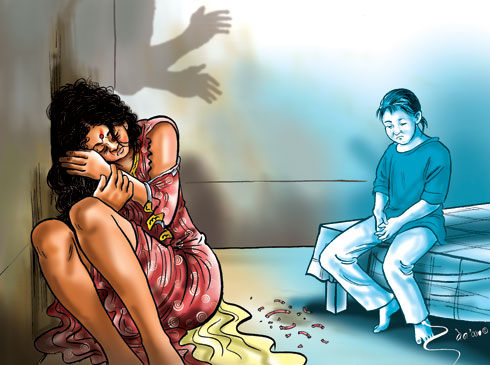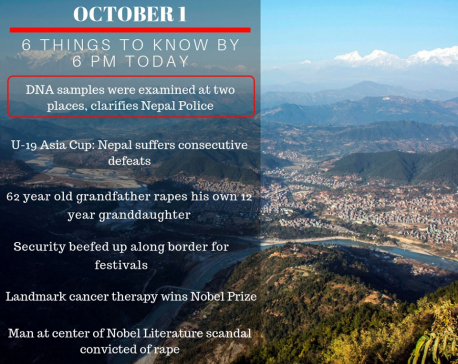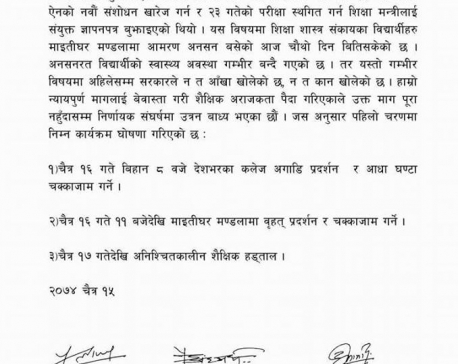
OR
51 rapes in 10 months, 5 every day in Dang
Published On: November 17, 2018 06:23 PM NPT By: Republica | @RepublicaNepal

DANG, Nov 17: The incidents of rape cases have gone up at an alarming rate in the last 10 months in the district.
According to a report revealed by the Informal Service Sector Center (INSEC), out of 151 incidents related to human rights violations, 51 rape incidents took place in the last ten months.
Similarly, seven people were murdered while three women were harassed for 'practicing witchcraft'. As many as 18 cases were related to untouchability, torture and illegal custody, among others.
A total of 170 people were victimized in the 151 incidents of human rights violations. Among them, 29 were males while 141 were females (44 girls and 97 women).
As many as 141 incidents were carried out by non-state actors while 10 incidents were executed by state actors.
Of the total 42 incidents of rape, 12 were girls aged between 3 to 10 in age, 17 girls between 11 to 14 and 13 girls aged between 15 to 18.
Among those incidents, eights cases were related to incest in which the girls were raped by their own father, grand-father, sibling, maternal uncle, brother-in-law and step-father according to the report.
Similarly, women and girls were found to have been raped by their neighbors, friends and near and dear ones.
You May Like This

OCT 1: 6 things to know by 6 PM today
Your daily dose of missed important news of the day. ... Read More...

In a govt led by the Left, student unions affiliated to the govt stage protests
KATHMANDU, Mar 20: Three student unions affiliated to three major political parties protested in front of Maitighar Mandala and called... Read More...

Rural municipality to hold salaries of govt teachers not sending their children to govt school
JAJARKOT, June 30: A rural municipality in Jajarkot district has decided to stop the salaries of teachers at government schools in... Read More...







Just In
- NRB to provide collateral-free loans to foreign employment seekers
- NEB to publish Grade 12 results next week
- Body handover begins; Relatives remain dissatisfied with insurance, compensation amount
- NC defers its plan to join Koshi govt
- NRB to review microfinance loan interest rate
- 134 dead in floods and landslides since onset of monsoon this year
- Mahakali Irrigation Project sees only 22 percent physical progress in 18 years
- Singapore now holds world's most powerful passport; Nepal stays at 98th











Leave A Comment